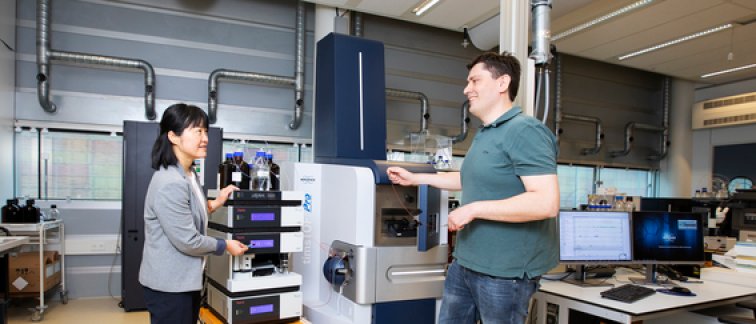Success stories
Sanne van Neerven, 2021 laureate
"The rapid turnover of the intestinal epithelium is controlled by intestinal stem cells (ICSs) residing in crypt-like structures. Within these crypts, ISCs continuously divide the generate all the differentiated cell types necessary to maintain tissue homeostasis and gut function. The introduction of lineage tracing techniques, that allow for genetic or fluorescent labelling of ICSs and their progeny, has greatly contributed to our knowledge of intestinal tissue dynamics. However, such tracing methods do not provide information on which cell types are generated and upon which signals. The recent developments in single cell-transcriptomic techniques have now enabled us to capture the gene expression profiles of all intestinal cell types at single cell resolution, thereby contributing another piece of information to the complex puzzle of intestinal homeostasis. Although single cell data can be utilized for the prediction of lineage relationships using pseudotimes, this analysis depends on many bioinformatic assumptions and lacks the resolution to capture swift transitions between cell types. Therefore, in this study, we combine both techniques to generate a real-time single cell atlas of intestinal differentiation. This will be a relevant resource for future studies in intestinal epithelial biology.
The dataset of this study is now integrated in the R2 bioinformatics platform and once analyses are finalized, all AGEM researchers can make use of this data to check their own research questions."
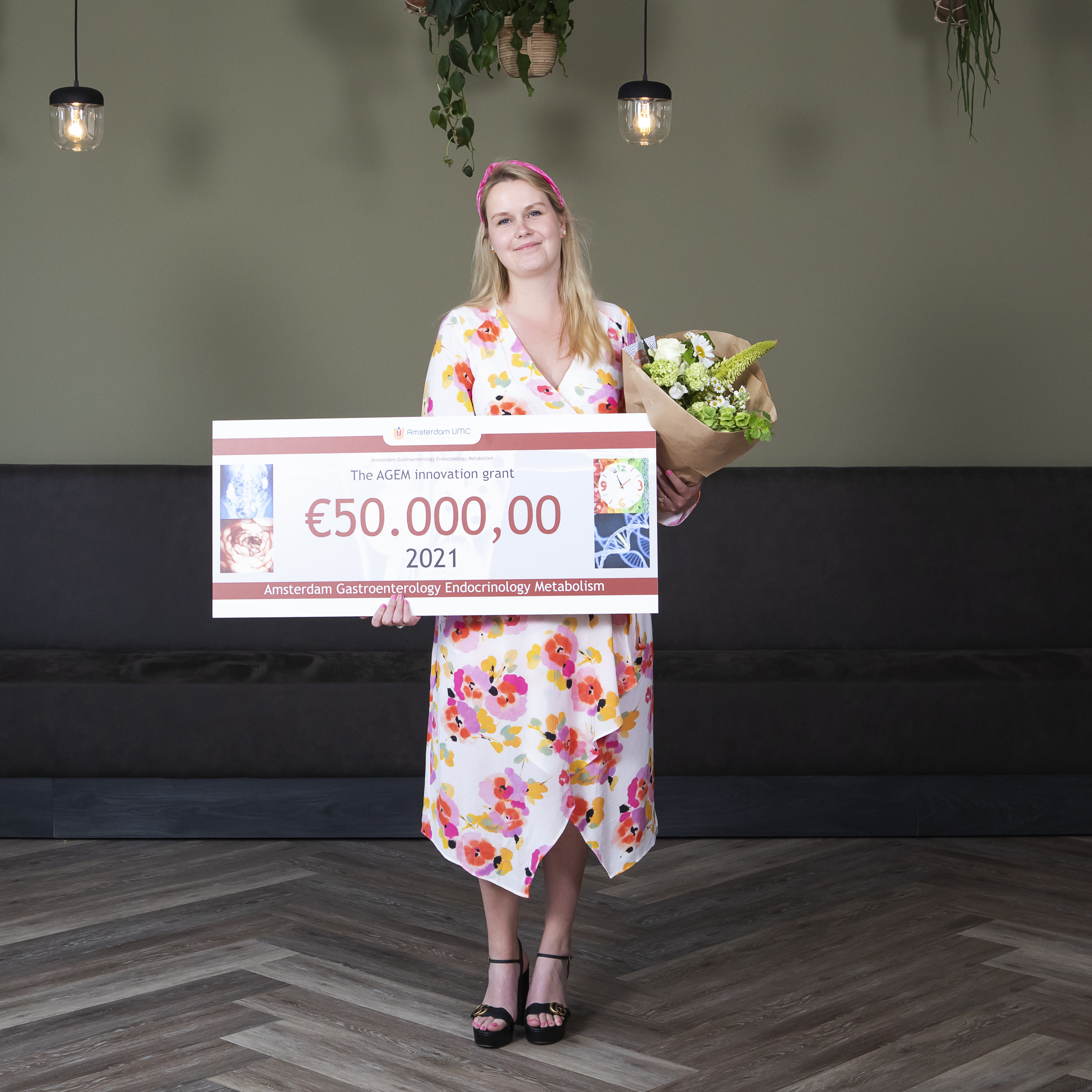
Sanne van Neerven
Chun-Xia Yi, 2020 laureate:
“This project answered a basic neuroendocrine research question that belongs to AGEM research theme, i.e. whether insulin affects brain immunity, via its receptors expressed by the brain immune microglial cells, and whether high fat diet-induce insulin resistance impairs microglia immune surveillance and phagocytosis, which consequently leads to malfunction in hypothalamic neurons that control body weight and whole body glucose metabolism. To find out whether we are able to profile the proteins involved in insulin signaling in small microglial cells, we teamed up our expertise from three research groups. The method for Rare Cell Proteomics in microglia we established (using micro-scale bead assisted protein precipitation and isobaric labels) provided a novel protocol for other researchers inside or outside of AGEM who want to study rare cell populations. Furthermore, our unexpected conclusion that proteins used in isolation of rare cells limit proteomic depth, allows AGEM researchers to focus on this aspect of rare cell isolation as well, to improve rare cell proteomics in the future.
To profile microglial proteins by Rare Cell Proteomics is a challenge in the research field. The data obtained by this project is essential for our understating of microglial intracellular signaling. We plan to apply for external grant (e.g NWO open competition grant) based on knowledge gained by this project, to expand the research questions regarding how the brain immune cells sense the metabolic hormones and play their role in supporting neurons to control body weight and whole-body energy metabolism. Thus, the AGEM grant was a critical seeding project for our future research.”
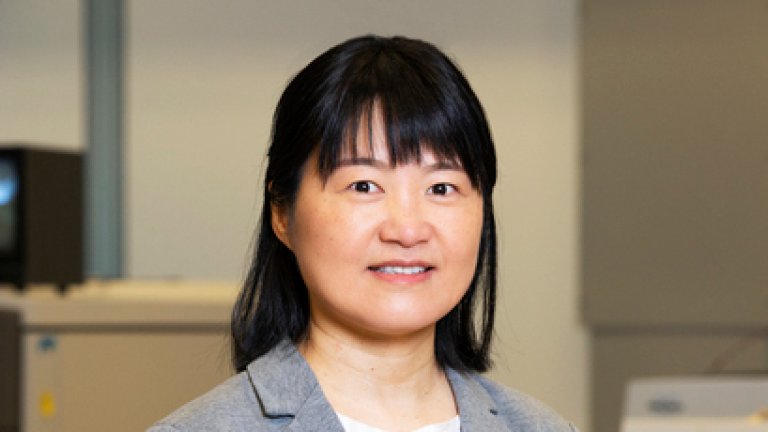
Chun-Xia Yi
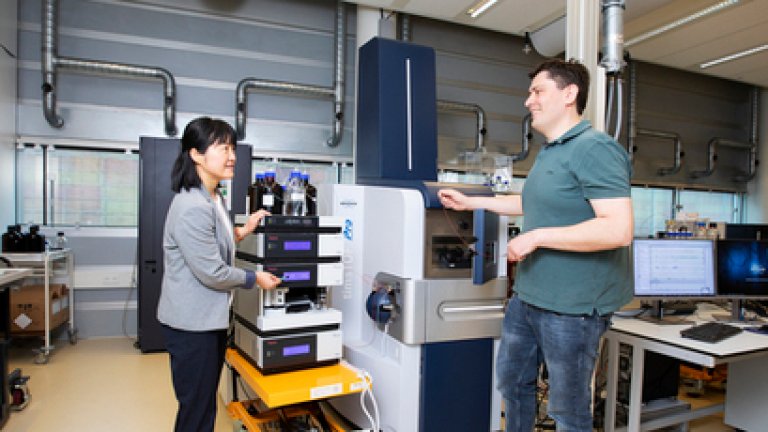
Sofieke de Jonge, 2018 laureate:
“The AGEM innovation grant has allowed me to continue my research as a postdoctoral fellow and project leader and evaluate the developed technique for MRI motility assessment in a patient population, chronic intestinal pseudo obstruction (CIPO). The grant was also beneficial for the AGEM institute as a whole. First, this alliance project has boosted research collaboration between the involved departments in both Amsterdam UMC locations in the field of bowel motility and gastrointestinal MRI. Second, the use of cine-MRI with a quantification technique has gained novel insight in global small bowel motility in CIPO patients. The observed motility patterns lay the groundwork to use cine-MRI in clinical practice for CIPO and might impact the current diagnostic workup and treatment decisions in this complicated patient group. Third, the application and therefore relevance of cine-MRI is clearly much broader than CIPO patients only. The current project establishes the value of this technique in measuring disturbed gastrointestinal motility in disease, this knowledge can be used in different patient groups. This CIPO project has paved the way to initiate more collaboration to develop, investigate and evaluate the clinical value of the MRI.”
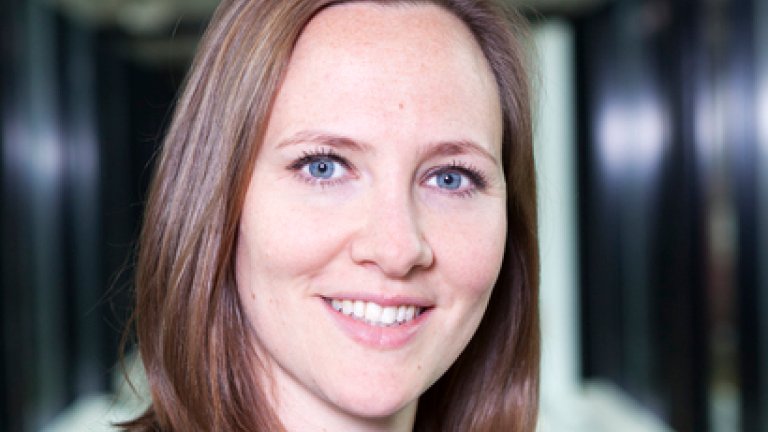
Sofieke de Jonge
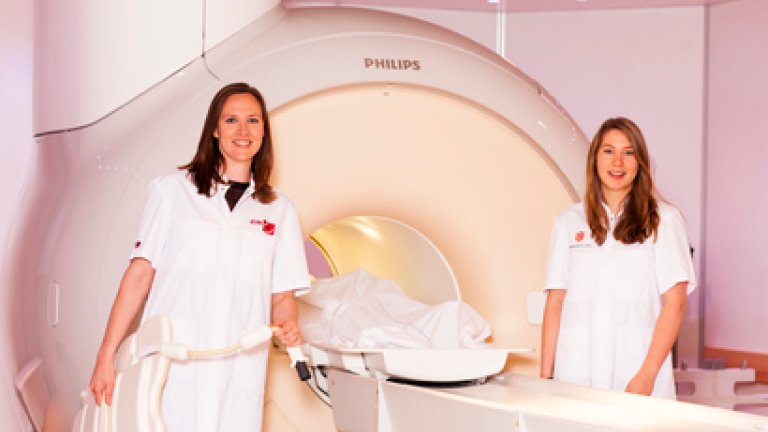
Overview of laureates per year
2024 - €25.000 each
| Laureates | Project title |
|---|---|
| Eefje Belt-van Zoen, Max Nieuwdorp, Hilde Herrema | Reducing Antibiotic Use for acute, uncomplicated Upper Respiratory Tract Infections (URTIs) by eHealth Apps that encourage safe use of effective natural medicinal products (e.g. food supplements) for URTIs and phase-specific fever management |
| Ramon Gorter, Joep Derikx, Bernadette de Bakker, Joris Roelofs, Daniël Docter, Michiel van Wijk | Exploring surgical anatomy and embryology of Esophageal Atresia through micro computed tomography |
| Sofieke de Jonge, Susanne la Fleur, Mireille Serlie, Katy van Galen | Gut responses to nutrients in humans with obesity: a randomized crossover MRI study |
| Chun-Xia Yi, Andries Kalsbeek, Rinke Stienstra, Patrick van der Zande | In-depth immunometabolic profiling of microglia in rats on Time-Restricted Eating using SCENITH-BONCAT assay |
2023 - €25.000 each
| Laureates | Project title |
|---|---|
| Roza Opperman | Non-invasive faecal amino acid profiles, volatile organic compounds and FIT for surveillance after piecemeal polypectomy: toward less unneeded colonoscopies |
| Eveline Bruinstroop | Uncovering the unknown pool of thyroid hormone by LC-MS/MS? |
| Koen Dreijerink | An integrative epigenetic approach to identify novel markers of hormone treatment response |
| Mireille Serlie | The effect of oral fructose on functional enterocyte mass in patients with intestinal failure; a feasibility pilot study |
2022 - €50.000 each
| Laureates | Project title |
|---|---|
| Jan Verhoeff | Spatial biology at the single cell level from formalin-fixed paraffin-embedded intestinal biopsies |
| Miriam van der Werf | The effect of nutritional desynchronization on bone turnover and circadian rhythm in intestinal failure patients. |
2021 - €50.000 each
| Laureates | Project title |
|---|---|
| Sanne van Neerven, Jan Koster, Louis Vermeulen | A real-time atlas of intestinal differentiation |
| Torsten Scheithauer, Melanie Bénard | Anaerobic culturing for large scale studies into microbiota function |
| Hans Waterham, George Janssen | Development of a user-friendly in silico comparative transcriptome analysis platform to facilitate drug screening and provide insight into disease mechanisms |
| Annet Bosch, Noam Zelcer, Sacha Ferdinandusse | Elucidating Classical Galactosemia; the search for modifier genes |
2020 - €50.000 each
| Laureates | Project title |
|---|---|
| Chun-Xia Yi, Gertjan Kramer, Menno P. de Winther | Dissecting microglial insulin signal pathway and insulin resistance by rare cell proteomics |
| Hilde Herrema, Peter Henneman, Max Nieuwdorp | Nanopore sequencing; conductivity leads to connectivity |
2019 - €50.000 each
| Laureates | Project title |
|---|---|
| Eduard Struys, Clara van Karnebeek | Towards better understanding and treatment of a debilitating metabolic epilepsy: innovative aldehyde profiling in a mouse model for Pyridoxine-Dependent Epilepsy |
| Geert Kazemier, Stan van de Graaf, Joris Erdmann | Establishment of an ex-vivo perfusion model by using porcine livers and human partial hepatectomy specimens. |
2018 - €50.000 each
| Laureates | Project title |
|---|---|
| Michel van Weeghel | Tracer-based metabolomics to analyze metabolic flexibility and dynamics |
| Sofieke de Jonge | Diagnosing chronic intestinal pseudo-obstruction with dynamic MRI motility measurements |
| Onno Holleboom | Introduction of hepatocyte-like cells derived from induced pluripotent stem cells to AG&M Institute: a versatile new technique |

